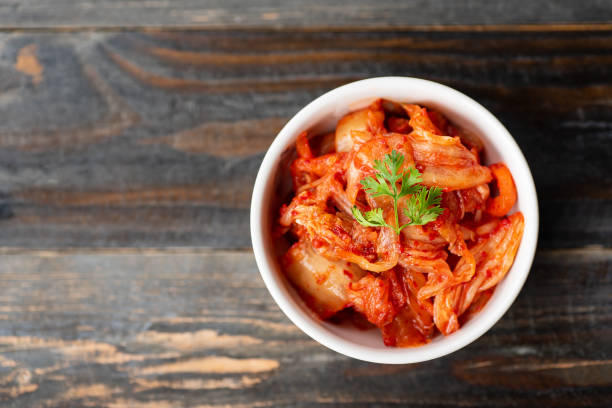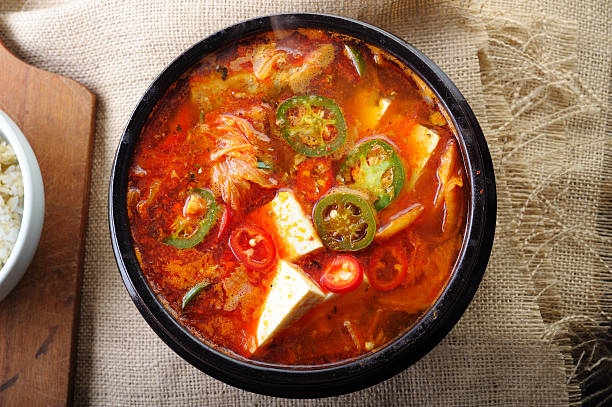Kimchi is a traditional Korean dish that has gained popularity worldwide due to its unique flavor and various health benefits. It is made from fermented cabbage, carrots, scallions, and other ingredients like garlic, ginger, and chili peppers. The fermentation process not only enhances the flavor but also increases the nutritional value of the dish. One of the most important nutritional aspects of kimchi is its calorie content. In this article, we will explore the number of calories in kimchi and the factors that affect its calorie count.
First, it’s important to understand that the calorie content of kimchi varies depending on the ingredients used, the recipe, and the serving size. According to the United States Department of Agriculture (USDA), one cup of kimchi (about 200 grams) contains approximately 50 calories. However, some recipes can contain more or less calories depending on the amount of sugar, salt, and other ingredients added.
Kimchi is low in calories compared to other popular fermented foods like sauerkraut or pickles. This makes it a great option for those watching their calorie intake or trying to maintain a healthy weight. The low calorie content of kimchi is due to its high fiber and water content, which helps fill you up without adding many calories to your diet.
The type of cabbage used in kimchi also affects its calorie count. Napa cabbage, which is commonly used in kimchi, is low in calories compared to other types of cabbage. In addition, the type of seasoning used can also affect the calorie content of kimchi. For example, recipes that include high amounts of sugar or other sweeteners can increase the calorie count, while those that use less salt or use low-sodium ingredients will have a lower calorie content.
Kimchi is also high in vitamins and minerals, including vitamin C, vitamin K, vitamin B6, and potassium. These nutrients help support overall health and wellness, and can contribute to weight loss. Vitamin C, for example, helps boost the immune system, while potassium helps regulate blood pressure and maintain healthy bones.
In addition to its low calorie content and high nutrient value, kimchi also offers other health benefits. One of the most well-known benefits of kimchi is its potential to aid in digestion. The fermentation process produces beneficial probiotics, which help promote a healthy gut microbiome. This can lead to improved digestion and reduced symptoms of digestive issues like bloating and constipation.
Kimchi is also a good source of antioxidants, which help protect cells from damage and may reduce the risk of chronic diseases like cancer and heart disease. Additionally, the spicy kick in kimchi comes from the chili peppers used in the recipe, and these peppers contain compounds that have been shown to have anti-inflammatory effects and may help reduce the risk of chronic diseases.
One of the main ingredients in kimchi is cabbage, which is a cruciferous vegetable. Cruciferous vegetables are known for their cancer-fighting properties, and consuming kimchi may help to reduce the risk of certain types of cancer. In addition, kimchi contains antioxidants, which help to protect the body against damage from free radicals and reduce the risk of chronic diseases such as heart disease, stroke, and cancer.
In conclusion, kimchi is a low-calorie food that is also high in vitamins, minerals, and dietary fiber. It is also a good source of probiotics, which can help to maintain gut health and prevent digestive problems. Kimchi is a great option for those watching their calorie intake and looking to maintain a healthy weight, and it can also help to reduce the risk of certain diseases. Whether enjoyed as a side dish, condiment, or ingredient in various dishes, kimchi is a flavorful and nutritious option that is worth trying.

 Home
Home Health
Health Diet & Nutrition
Diet & Nutrition Living Well
Living Well More
More












